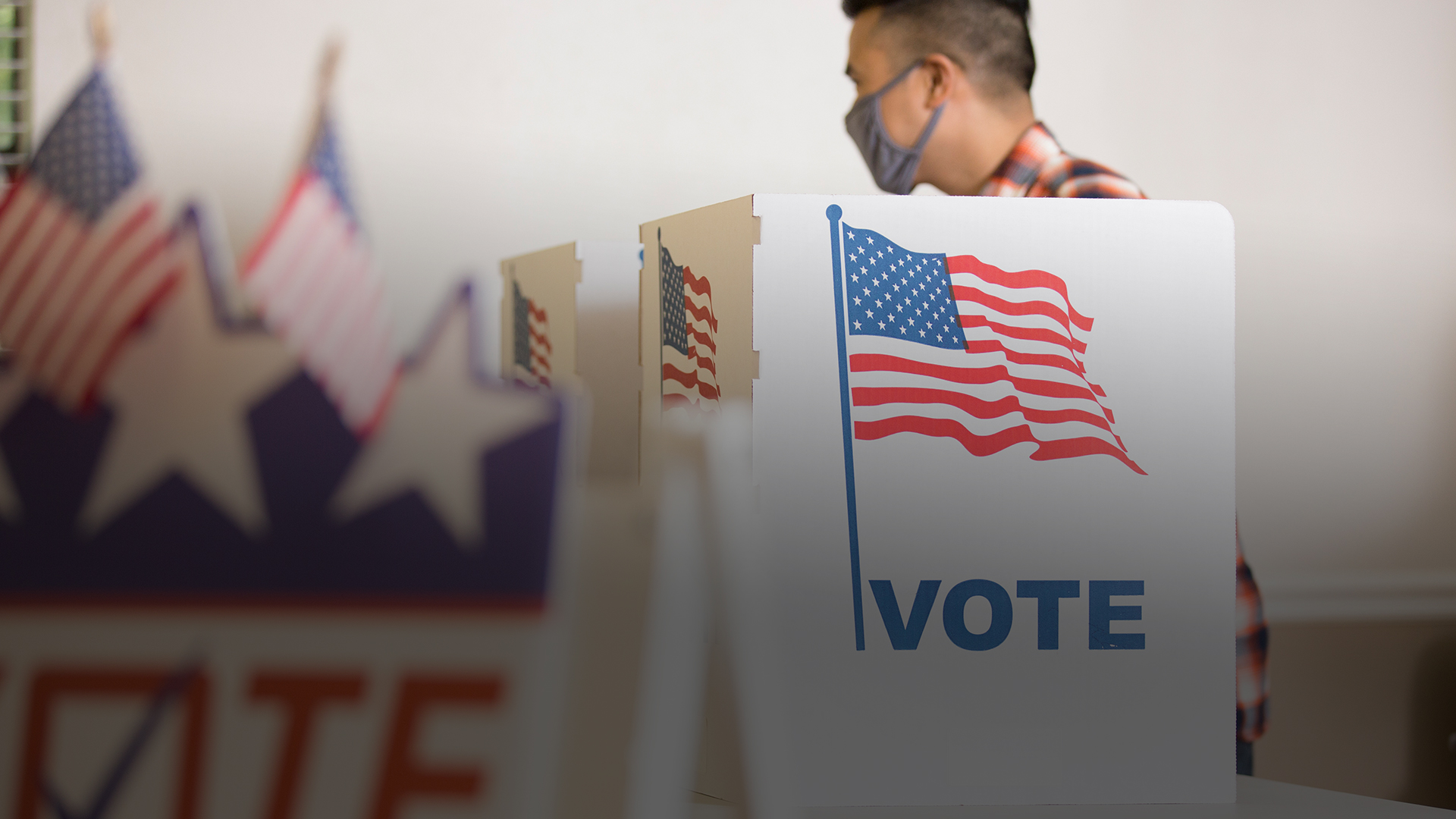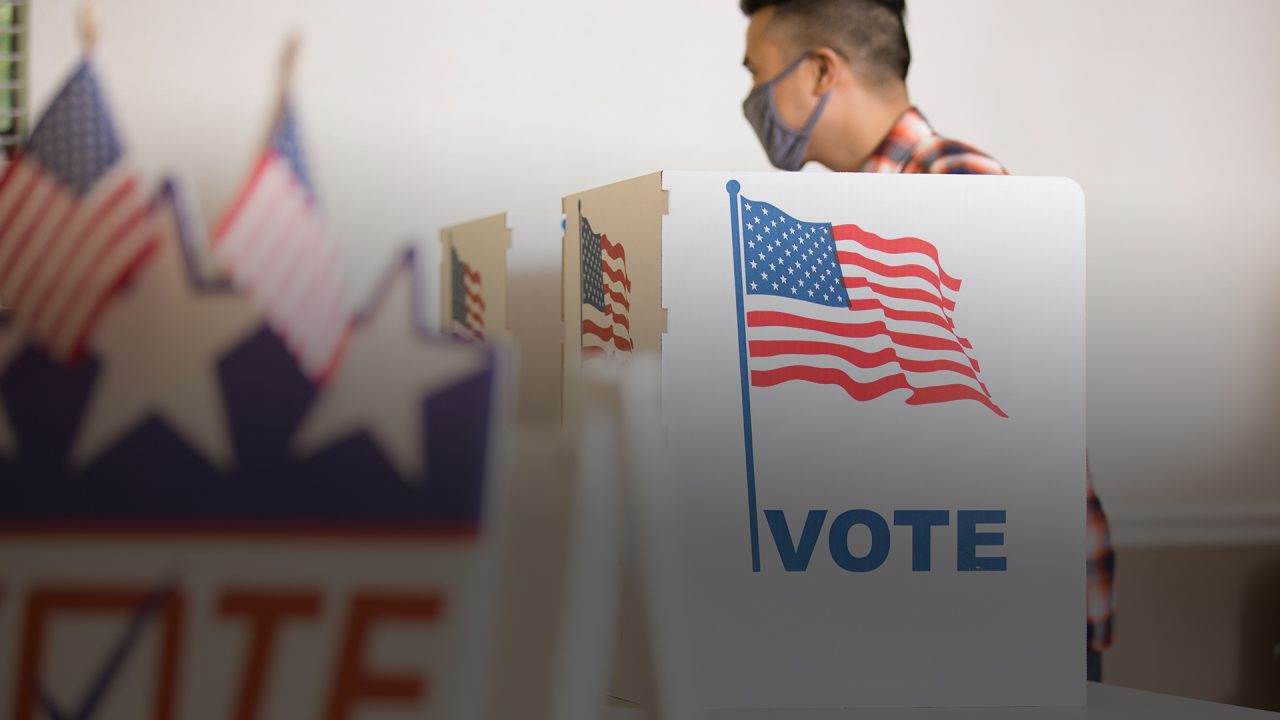
An ordinance sponsored by Mat-Su Borough assembly members Rob Yundt and Dee McKee was approved on Jan. 16, eliminating off-year elections and extending the terms served from three to four years, for both borough mayor and all assembly members. This will allow all future elections to line up with state and federal elections.
In the 2023 Mat-Su election, which cost the borough more than $200,000 according to estimates from the borough, the election turnout was only 9% with less than one in 10 Mat-Su citizens deciding the future direction of the school board and the make-up of the assembly. Contrast that with the 2022 election, which had a similar cost to conduct, but enjoyed a voter turnout of 40%.
ALASKA WATCHMAN DIRECT TO YOUR INBOX
In the lead up to the vote, Assemblyman Rob Yundt told the Watchman his ordinance not only reduces the number of elections, but “it will ensure that all future elections line up with State and Federal elections which history proves have a much higher turnout. I think that is good for the Borough from a representation standpoint, and by reducing the cost and scope of off-year elections, it is also good from a financial standpoint as this will save borough taxpayers hundreds of thousands of dollars over the coming years.”
By lining up our borough elections with state and federal elections, a better voter turnout is virtually guaranteed.
Edna DeVries, Mat-Su Borough Mayor
Currently serving assembly members, who hold seats that normally expire in 2025, will receive a potential transitory term, if reelected, to align them with the State and Federal elections in 2026. The ordinance specifically excludes the transitory term from the standard two term limits passed in the Mat-Su Borough in 2022, which means Dee McKee and Stephanie Nowers will not be penalized one term of their two-term limit for the single-year transitory term from 2025 to 2026, if they choose to run and are re-elected to the transitory term.
Mat-Su Borough Mayor, Edna DeVries told the Watchman that, “stats show that our last election had a very low turnout of around 9%. By lining up our borough elections with state and federal elections, a better voter turnout is virtually guaranteed.”
The ordinance passed with only Assembly Members Stephanie Nowers and Tim Hale opposed.
PROPOSAL WOULD LET CANDIDATES IDENTIFY BY POLITICAL PARTY
Also debated during the meeting was ordinance OR-24-010, which would allow for additional voter information related to political party affiliation to be optionally included on candidates for Borough Assembly, Mayor, and School Board. The ordinance would not require candidates to identify their party affiliation but would simply give them that option with the aim of better informing voters where candidates’ political affiliations lie. A vote on the ordinance was postponed until February to give assembly members more time to offer suggestions about how to improve it.
Nowers opposed the plan, claiming it introduced unnecessary partisan elements into borough elections, which are supposed to be nonpartisan.
The borough attorney, however, explained that Mat-Su elections would still be nonpartisan because they would continue to allow anyone to vote for any candidate, regardless of the voter’s or the candidate’s political affiliation.
Several members of the public spoke either for and against the proposal, with opponents claiming party identifiers would only serve to create more division in the community.
Ron Johnson, who is very active in conservative politics, countered by pointing out that all politics are partisan in as much as party affiliation indicates the overall political values of a candidate.
“People associate with a party for a reason,” he told the assembly. “I believe this just gives voters one more piece of information.”
Yundt, who sponsored the ordinance, said the intent is to give voters as much information as possible. He noted that when candidates go door-to-door during campaign season, voters always want to know whether they are Republican, Democrat, independent or other. He added that allowing candidates to voluntarily put a party identifier on the ballot, will just give voters more information.
ENCOURAGING RESPONSIBLE FIREARMS POSSESION
Another measure, which passed unanimously on Jan. 16, was a resolution by Assembly Members Ron Bernier and Dee McKee encouraging borough residents to maintain firearms and ammunition in order to help “provide for the emergency management of the Borough, and provide for and protect the safety, security, and general welfare of the Borough and its inhabitants.”
The resolution notes that the borough does not provide law enforcement services and that the Alaska State Troopers have “significant challenges in providing full staffing for public safety in the Matanuska-Susitna Borough.”
It concludes by stating that “proper and responsible ownership and maintenance of firearms can contribute to personal safety, security and general welfare of the community.”








4 Comments
The problem with that is that the difference between the 9% off year turnout and the 40% general election turnout is 31% of the population who don’t have a clue about the candidates and the issues. They’re showing up filled with the campaign propaganda from the big money candidates and issues, likely funded by out-of-state organizations, and will simply punch the tickets on the local candidates and issues based on who has the name they can pronounce or based on gender. Those 9% of citizens who show up in off years (me) show up for a reason, and we do it every time.
I am afraid that you might be right. While I like the idea that people won’t feel like they are voting every year; they will be flooded with a ton of information and might have a harder time keeping issues straight. But, I think that overall it will be better not trying to remember the off-year.
I was initially against the extension as I had not seen the reasoning the change was based, and just assumed it was simply to lengthen time on the board. Given there is the occasional assembly member who needs to be voted out asap, extending to four years seemed concerning. The voter turn out, fewer elections for voters to keep track of and the off year factor do seem to be good reason for the change.
So we would rather have higher turn out with less informed voter than what we have now, and less elections does this make since to you , sure dont to me. Local governance should not be for four terms. There are a few people that can run for the Matsu assembly and commit to four years. I think we should go the other way we could still stay lined up with the elections and elect our assembly members for two year terms. This was a lot more people to possibly run to your term makes way more sense than even the three-year term, I am totally against having an assembly member for four years so if they really suck we’re stuck with them for four years in the past three years was enough now you wanna add another year
. Thanks to rezoning the goose Bay area was lucky to get rid of our loser state senator so again shorter the better and I’m sure there’s way more people out there that would agree. Takes five minutes on your way home from work or the grocery store to swing by and vote. My vote means something voting not supposed to be easy and remember these assembly members are supposed to represent us not care about how many people show up to vote. It should matter to them that the 9% did show up to vote. This voter that was one of the 9% they didn’t have a choice but to have McKee become their assembly person never responded to emails that’s why voting matters. And to think that I might have her an extra year because of this ordinance is not right.